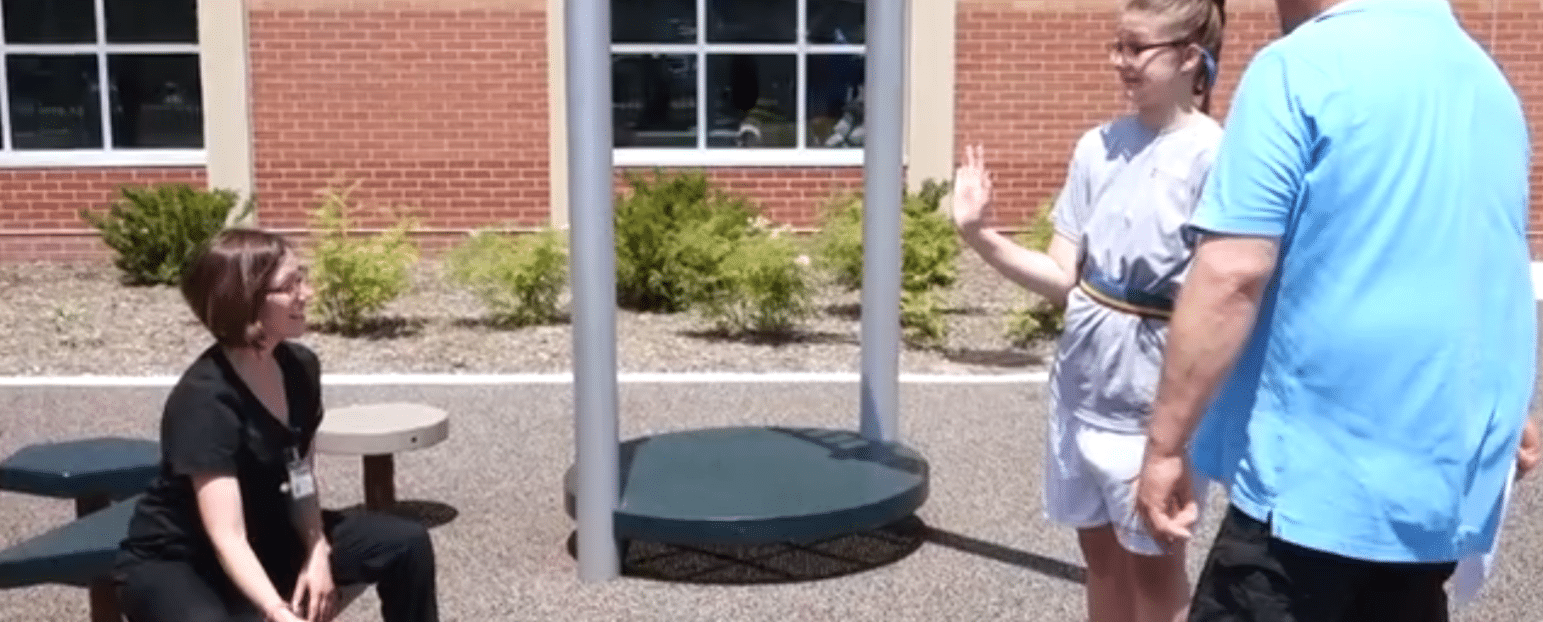Throwing a water balloon, eating ice cream and taking a walk on a sunny, summer day are common activities for any teenager. But for Marilyn Knurck, seeing her 16-year-old daughter Lea do these things as part of therapy gives her hope.
“We went from a time where we took her off life support, and basically we were preparing a funeral because we did not expect her to live,” said Marilyn Knurck, of Sioux Falls, South Dakota.
In April 2017 Lea’s prognosis was grim after she suffered an anoxic brain injury.
“… Five hours after we took her off of life support, she was still breathing and the doctor said she was not showing any signs of slowing down,” Marilyn said.
It planted a seed of hope as Lea began a journey of recovery that brought her nearly 200 miles south, from Sioux Falls to Madonna’s Omaha Campus pediatric rehabilitation unit.
“I’d never heard of Madonna before. After we started talking about Madonna, a lot of people have said ‘oh yeah, you need to go there,'” she said.
A transdisciplinary team began working with Lea to improve her coordination and help her find her words – with physical, occupational and speech therapies.
“When we first started, she wasn’t attending to anything in her environment. She seemed to just kind of follow through the motions,” explained physical therapist Kirsten Demmel. “We worked really hard on opening and pulling doors. And that was just a moment that she looked at me. And she looked at the door and it was a very familiar door because she loves going outside and she looked at me again and she goes, “look,” and she hadn’t said anything.”
“Patients have really small gains at times, but those small gains are so important to their recovery and their rehab. We have to look at the big picture. What is Lea doing? What are her strengths? Her strengths are that she has a great personality. She is a funny girl. She will make faces at you that you know what’s going on up there? You’re saying something and I want you to say it to me. So you know that this is a beautiful, wonderful girl and you just want to bring that out as much as possible. So all the little things that you see are just building up to what she’s going to be eventually,” said Cait Scott, speech-language pathologist.
Specially trained nurses provided additional support in Lea’s care.
“I’ve seen her in there. I’ve seen her. I just know she’s in there. So for me I’m holding out hope, too, that she just comes back to us. Because I’ve seen her. I’ve seen those glimpses. So I agree with her mom. And I was there with her the day she first communicated, nods yes and nos, which was huge,” said Autumn Botdorf, registered nurse.
An example of Lea’s progress, which feeds the hope for her continued recovery.
“The hope we were given was that she probably wouldn’t be able to speak or hear, eat, walk any of that stuff and she’s defying those odds and she’s doing a lot of it., said Marilyn.
To learn more about Madonna’s Pediatric Program, click here.






